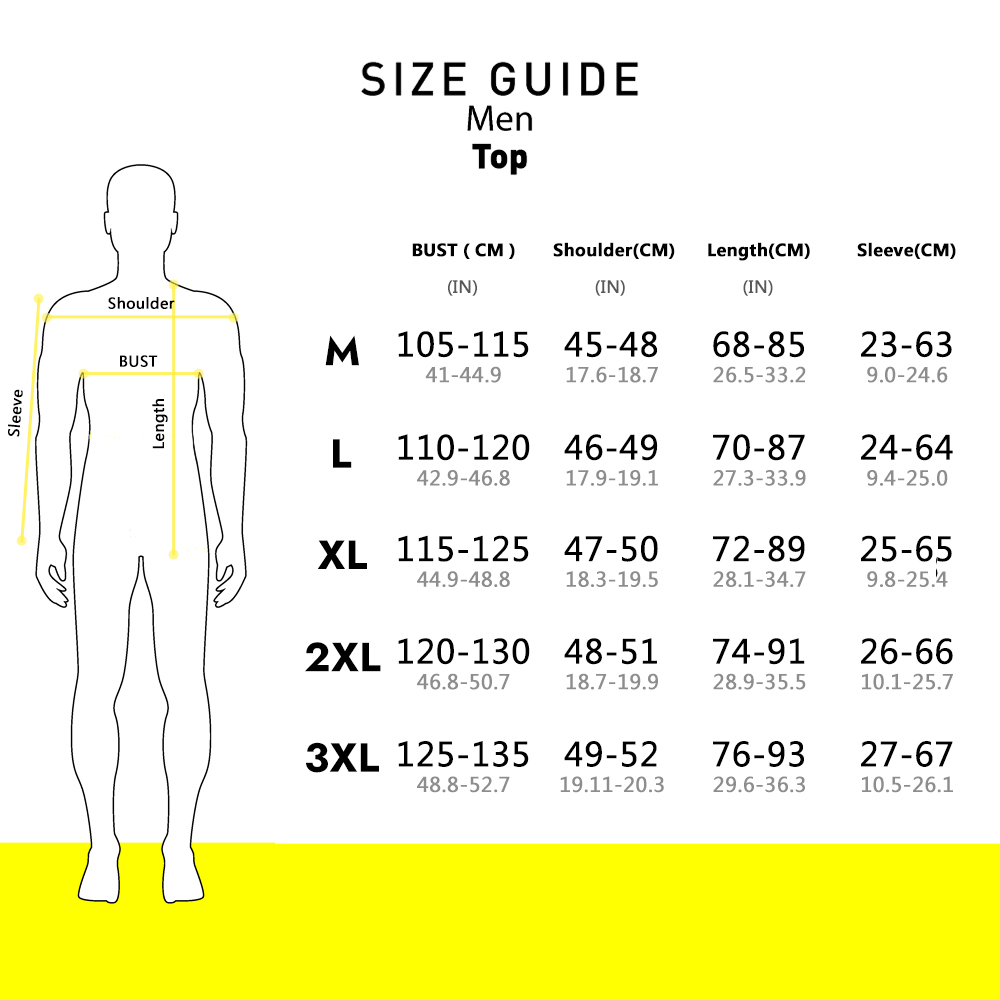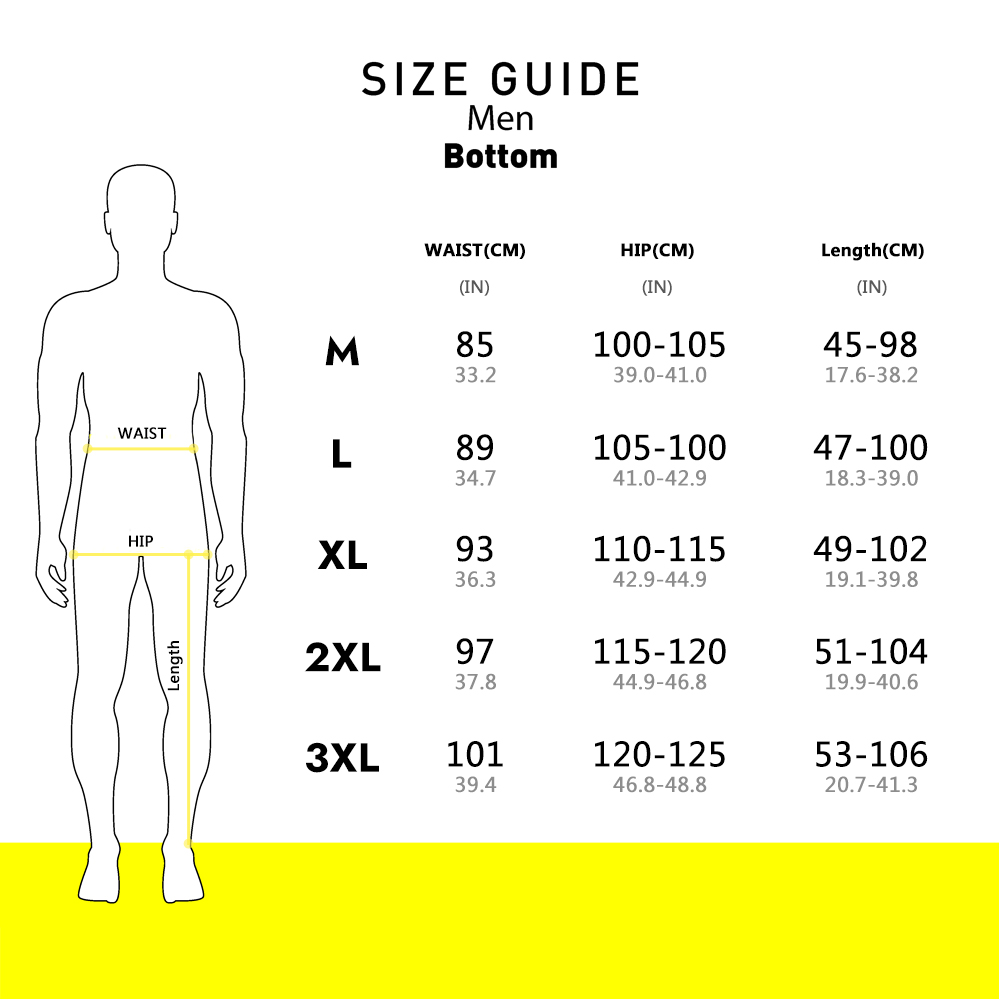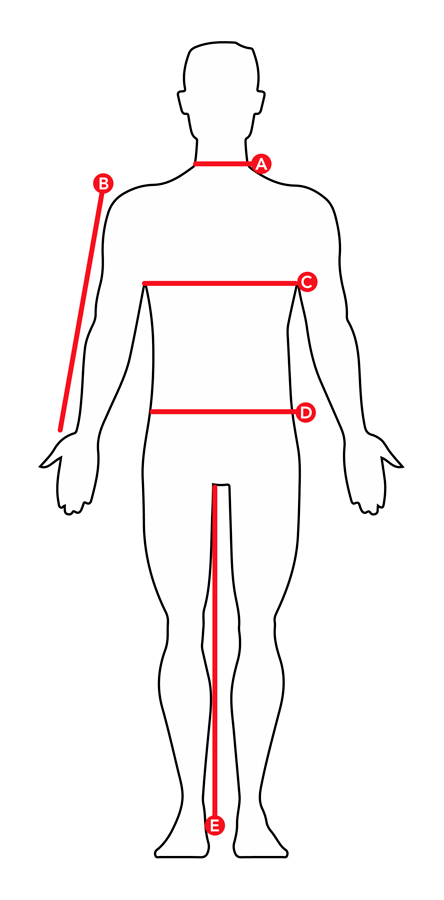How To Choose Your Size?
Don't know your size? Our size guide will help you find the suitable size!
1.Where is the size reference displayed?
Just click on the “Size Reference” button on each product page to find out the measurements which you can view in centimeters and inches, as well as instructions on how to measure to ensure it fits perfectly.
 |
 |
2.HOW TO CHOOSE YOUR SIZE ?
Take your measurements using a tape measure, then refer to our size guide.
WAIST : Measure form the end of the shoulder down to the wrist.
HIP : Measure around the fullest part of your hips. Leave enough room to move comfortably.
 |
A.Measure around the base of your own neck,keeping two fingers between your neck and the tape measure.
B.Measure from the end of the shoulder and down to preferred length.
C.Measure around yourchest.
D.Measure around the fullest part of your waist.
E.Measure from the crotch down to the desired leg length. |
3.General standard grading for Numeric Sizes:
-
Size 00-10: 1” all around circumference (e.g.: Between a size 2 and 4, the bust, waist, and hips measurements will each increase 1” in circumference)
-
Size 10 and up: 1.5” all around circumference between sizes
General standard grading for Letter Sizes:
-
Size S – L: 2” all around circumference between sizes
-
Size L and up: 3” all around circumference between sizes
Letter sizes are usually meant to cover a wide range of sizes, for example:
XS = 0-2 , S = 4-6 , M = 8-10 , L = 10-12
4.To decide which method will work best for your product consider the following:
-
Style and fit – T-shirts, sweatshirts, hoodies, pajamas or even overcoats etc. usually have a looser, more relaxing fit which is why the majority of these styles have letter sizes. Fitted dress pants, a fitted button down shirt or dresses have more importance placed on fit and therefore you want less grading differences between sizes.
-
Fabric – Depending on the amount of stretch, styles made in a stretch fabric, such as active or performance wear, you might choose to run letter sizes. The same might go for really heavy fabrics such as a coat fabric where 1” grading might not make as much of a difference.
-
Look – Letter sizing is often most appropriate for and best fits the definition of casual wear, whereas dressier and formal wear that uses number sizing is often perceived as higher end due to its higher fit standards and quality.



